Katunobu Itou
Effects of Language Modeling on Speech-driven Question Answering
Jul 10, 2004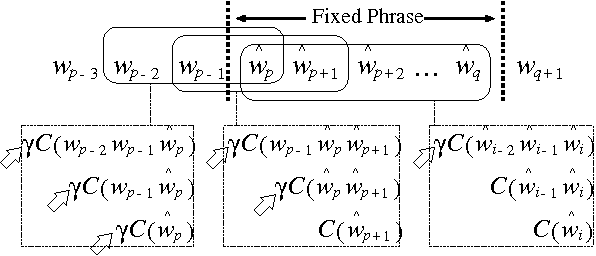
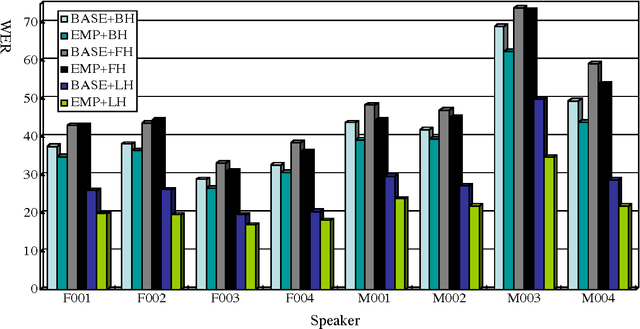
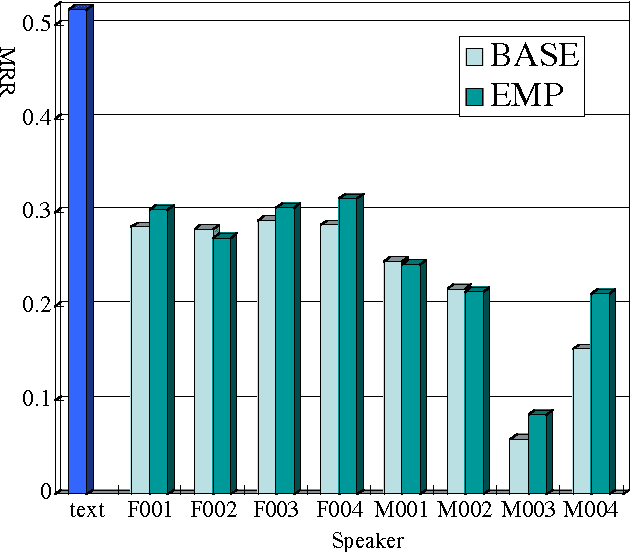
Abstract:We integrate automatic speech recognition (ASR) and question answering (QA) to realize a speech-driven QA system, and evaluate its performance. We adapt an N-gram language model to natural language questions, so that the input of our system can be recognized with a high accuracy. We target WH-questions which consist of the topic part and fixed phrase used to ask about something. We first produce a general N-gram model intended to recognize the topic and emphasize the counts of the N-grams that correspond to the fixed phrases. Given a transcription by the ASR engine, the QA engine extracts the answer candidates from target documents. We propose a passage retrieval method robust against recognition errors in the transcription. We use the QA test collection produced in NTCIR, which is a TREC-style evaluation workshop, and show the effectiveness of our method by means of experiments.
* 4 pages, Proceedings of the 8th International Conference on Spoken Language Processing (to appear)
Unsupervised Topic Adaptation for Lecture Speech Retrieval
Jul 10, 2004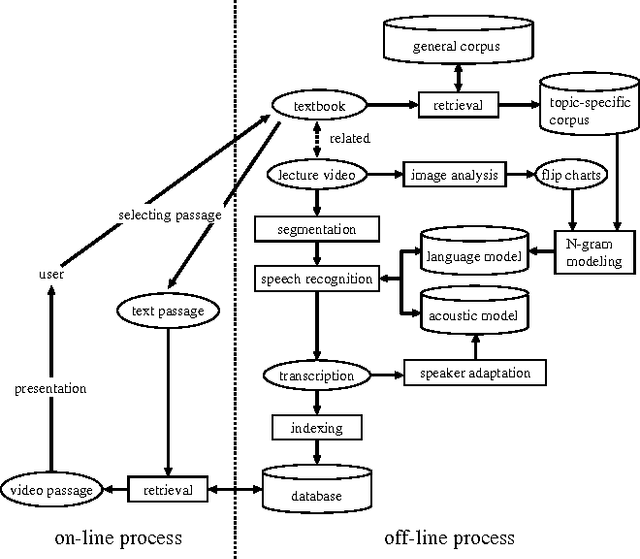

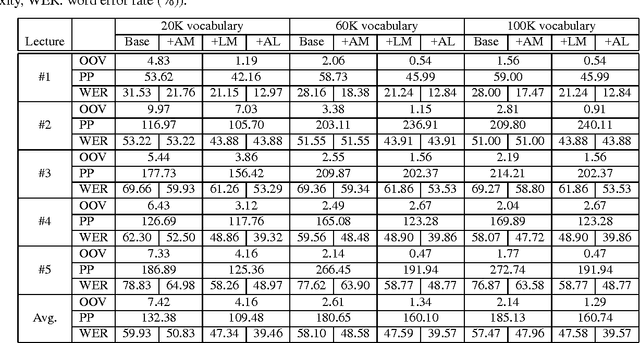
Abstract:We are developing a cross-media information retrieval system, in which users can view specific segments of lecture videos by submitting text queries. To produce a text index, the audio track is extracted from a lecture video and a transcription is generated by automatic speech recognition. In this paper, to improve the quality of our retrieval system, we extensively investigate the effects of adapting acoustic and language models on speech recognition. We perform an MLLR-based method to adapt an acoustic model. To obtain a corpus for language model adaptation, we use the textbook for a target lecture to search a Web collection for the pages associated with the lecture topic. We show the effectiveness of our method by means of experiments.
* 4 pages, Proceedings of the 8th International Conference on Spoken Language Processing (to appear)
A Cross-media Retrieval System for Lecture Videos
Sep 13, 2003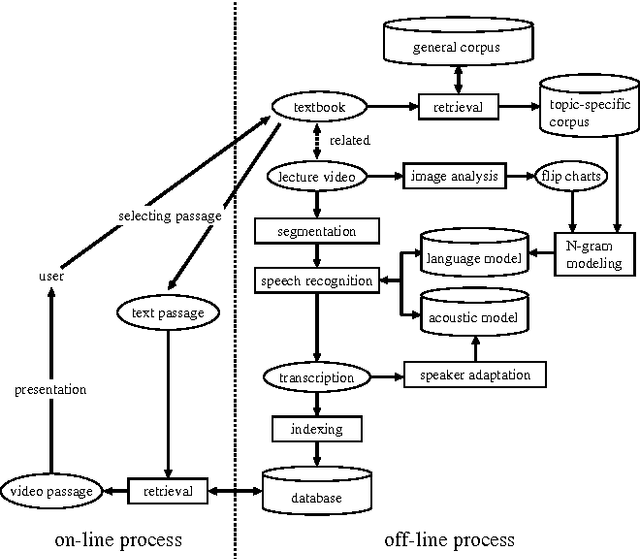

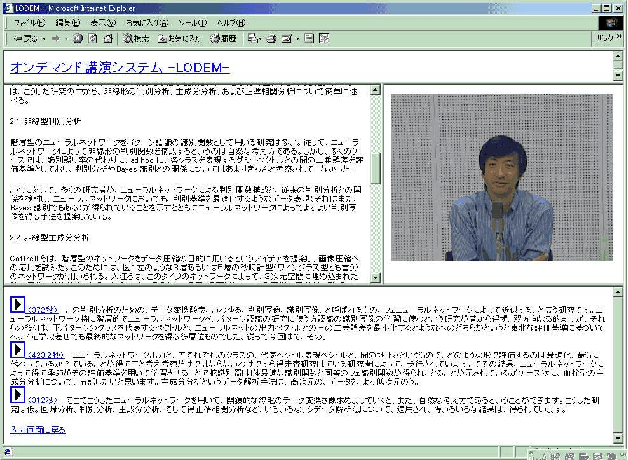
Abstract:We propose a cross-media lecture-on-demand system, in which users can selectively view specific segments of lecture videos by submitting text queries. Users can easily formulate queries by using the textbook associated with a target lecture, even if they cannot come up with effective keywords. Our system extracts the audio track from a target lecture video, generates a transcription by large vocabulary continuous speech recognition, and produces a text index. Experimental results showed that by adapting speech recognition to the topic of the lecture, the recognition accuracy increased and the retrieval accuracy was comparable with that obtained by human transcription.
Building a Test Collection for Speech-Driven Web Retrieval
Sep 12, 2003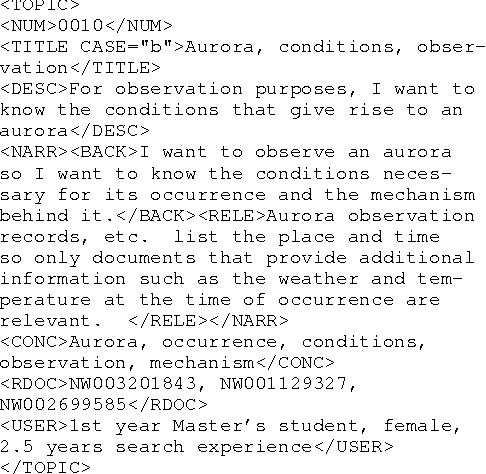

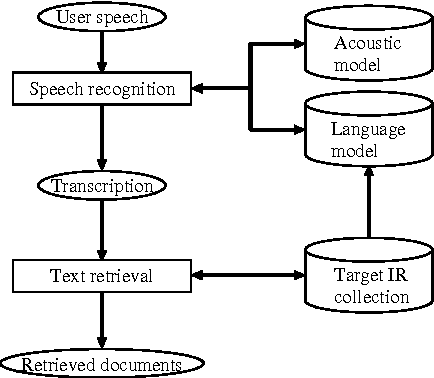

Abstract:This paper describes a test collection (benchmark data) for retrieval systems driven by spoken queries. This collection was produced in the subtask of the NTCIR-3 Web retrieval task, which was performed in a TREC-style evaluation workshop. The search topics and document collection for the Web retrieval task were used to produce spoken queries and language models for speech recognition, respectively. We used this collection to evaluate the performance of our retrieval system. Experimental results showed that (a) the use of target documents for language modeling and (b) enhancement of the vocabulary size in speech recognition were effective in improving the system performance.
Speech-Driven Text Retrieval: Using Target IR Collections for Statistical Language Model Adaptation in Speech Recognition
Jun 24, 2002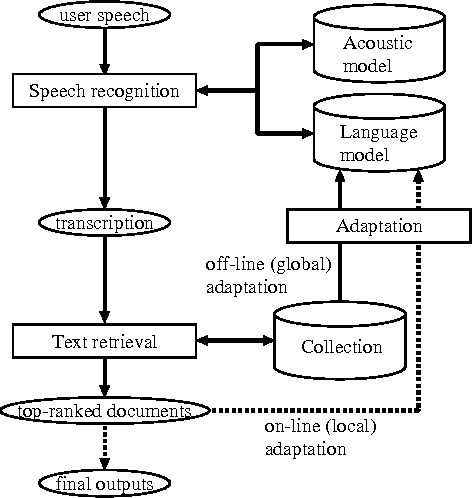

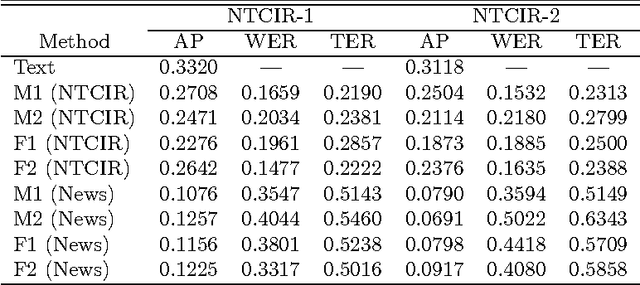
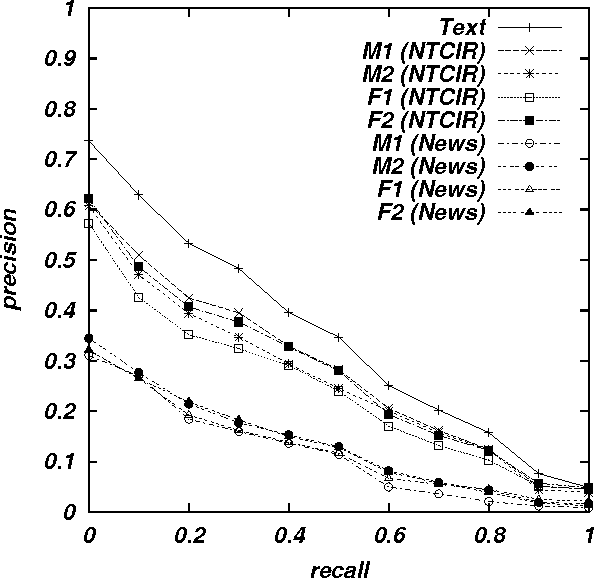
Abstract:Speech recognition has of late become a practical technology for real world applications. Aiming at speech-driven text retrieval, which facilitates retrieving information with spoken queries, we propose a method to integrate speech recognition and retrieval methods. Since users speak contents related to a target collection, we adapt statistical language models used for speech recognition based on the target collection, so as to improve both the recognition and retrieval accuracy. Experiments using existing test collections combined with dictated queries showed the effectiveness of our method.
Language Modeling for Multi-Domain Speech-Driven Text Retrieval
Jun 24, 2002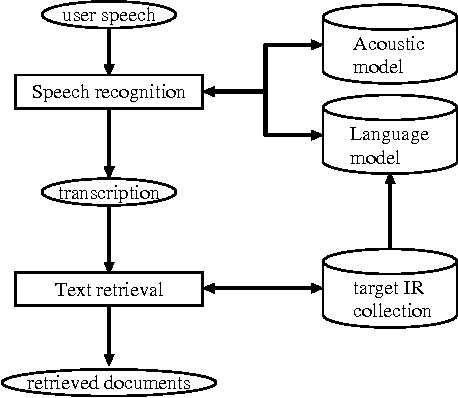
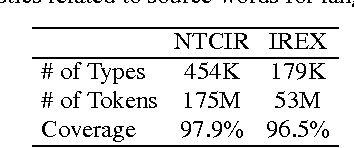

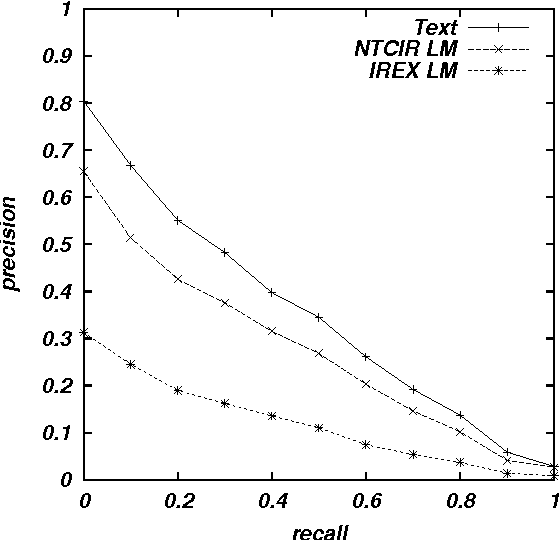
Abstract:We report experimental results associated with speech-driven text retrieval, which facilitates retrieving information in multiple domains with spoken queries. Since users speak contents related to a target collection, we produce language models used for speech recognition based on the target collection, so as to improve both the recognition and retrieval accuracy. Experiments using existing test collections combined with dictated queries showed the effectiveness of our method.
A Method for Open-Vocabulary Speech-Driven Text Retrieval
Jun 09, 2002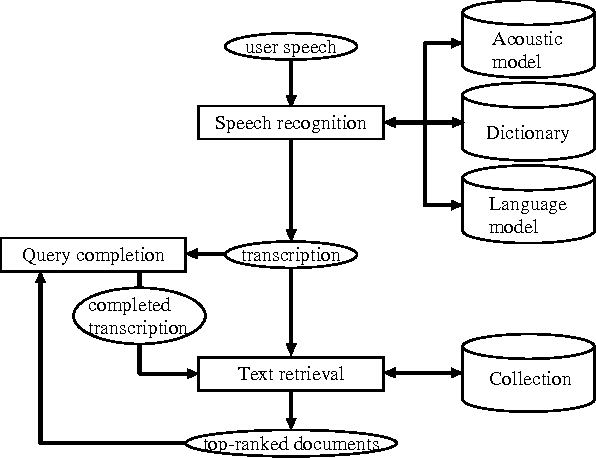
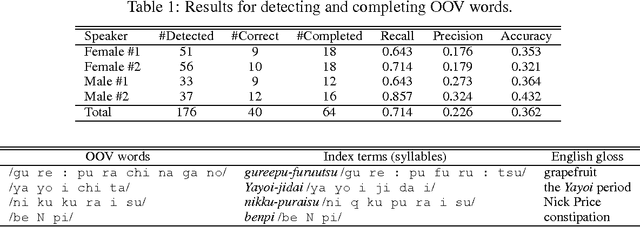
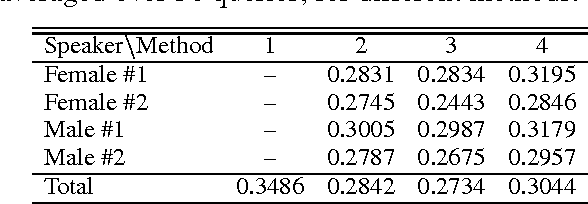
Abstract:While recent retrieval techniques do not limit the number of index terms, out-of-vocabulary (OOV) words are crucial in speech recognition. Aiming at retrieving information with spoken queries, we fill the gap between speech recognition and text retrieval in terms of the vocabulary size. Given a spoken query, we generate a transcription and detect OOV words through speech recognition. We then correspond detected OOV words to terms indexed in a target collection to complete the transcription, and search the collection for documents relevant to the completed transcription. We show the effectiveness of our method by way of experiments.
* Proceedings of the 2002 Conference on Empirical Methods in Natural Language Processing (To appear)
 Add to Chrome
Add to Chrome Add to Firefox
Add to Firefox Add to Edge
Add to Edge